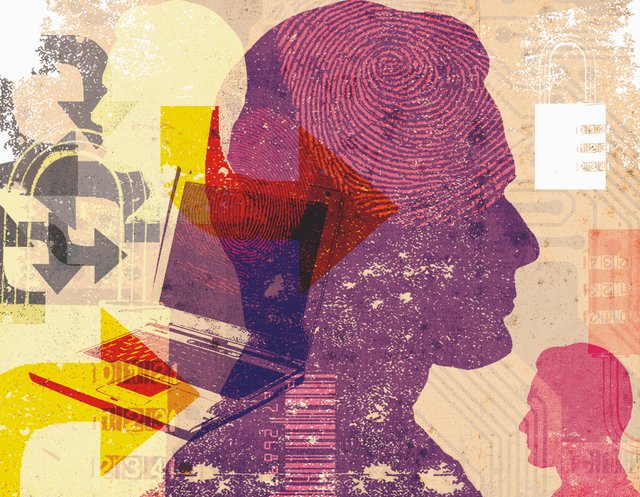The UK and USA need to extend their “special relationship” to technology development
Matt Hancock
Contributor
<div>
<a target="_blank" href="https://twitter.com/matthancock">
<title>Share on Twitter</title>
</a>
</div>
</div>
<div>
Matt Hancock is the <a href="https://www.gov.uk/government/people/matthew-hancock">Secretary of State for Digital, Culture, Media and Sport</a> and a Member of Parliament for West Suffolk. </div>
</div>
The UK and the USA have always had an enduring bond, with diplomatic, cultural and economic ties that have remained firm for centuries.
We live in an era of profound change, and are living with technologies set to change things ever faster. If Britain and America work together to develop these technologies for the good of mankind, in a way that is open and free, yet also safe and good for our citizens, we can maintain the global lead our nations have enjoyed in the fields of innovation.
Over past months we have seen some very significant strides forward in this business relationship. All of the biggest US companies have made decisions to invest in the UK. Apple is developing a new HQ in the iconic Battersea Power Station, close to the new US embassy, while Google is building a billion dollar new HQ in the increasingly fashionable King’s Cross. Facebook, Amazon, IBM and Microsoft are all extending their operations, and a multitude of smaller US firms are basing their international headquarters in London.
They are all coming here because as we prepare to leave the EU we are building a forward looking Britain that is open to the wider world, and tech is at the heart of this.
Similarly, there have been major expansions or new investment from British firms into the US. Jaguar Land Rover, the UK’s largest automotive manufacturer, supports more than 9,000 jobs in the USA and have recently opened their new multimillion-dollar corporate North America HQ in New Jersey. iProov, a leading British provider of biometric facial verification technology, became the first international company to be awarded a contract from the US Department of Homeland Security Science & Technology Directorate’s Silicon Valley Innovation Program last month.

We want to work with our global partners – to share expertise, and encourage investment – as we harness technology for the wider good. And that of course includes our old friend and closest ally, the USA.
We have a great deal to offer.
The UK was recently ranked the most AI ready nation among all the OECD countries. In the past three years, new AI start-ups have been created in the UK on an almost weekly basis.
Recently, UK government and industry together committed over $1 billion to support our AI sector, much of which will go towards entrepreneurs. Funding has been set aside to create a nationwide network of tech incubators, that we’re calling “Tech Nation”, which will support new AI businesses as they get off the ground.
We are also excited by — and I am a firm advocate for — the development of blockchain and similar technologies. The UK is leading the way in many areas where blockchain has the potential to be used, such as Fintech. There are now more people working in UK Fintech than in New York or in Singapore, Hong Kong and Australia combined.
And we are eminent in the development of immersive technologies, like Augmented and Virtual Reality, which look set to radically improve many areas of life in coming years, with applications as varied as flight simulation and surgical training techniques.
There is so much to be gained from close collaboration between our two countries on these new technologies and from sharing our expertise.

Together, we can reap the economic benefits of stealing an early lead in their development. We estimate that AI, for example, if widely adopted, could add $33 billion to the UK economy. But, perhaps most importantly, we can also work together to build a strong regulatory and ethical frameworks for their wider application.
It is the role of governments across the world, the UK and US included, to set frameworks for these decentralised, cross border systems so we can manage their use in a safe and effective way.
Our aim should be to harness the power and capability of technology but always for the benefit of, and in service to the populace.
We in the UK are avowedly pro-tech, always seeking to put its power in the hands of our citizens.
We have all learned valuable lessons from the recent scandals regarding data use, most recently around Facebook’s use of data.
We want to build a system that protects and cherishes the freedom of the Internet while protecting the rights of individuals, and their property, including intellectual property.
We want to see freedom in a framework; where our tech entrepreneurs have the space to innovate, knowing they do so with full public trust. Trust underpins a strong economy, and trust in data underpins a strong digital economy.
So in the UK we are developing a Digital Charter, to agree norms and rules for the online world and put them into practice. Our starting point is that what is unacceptable offline should not be tolerated in the online world. That includes how tech companies treat private citizens and use their data, as well as how people treat each other online.
Important changes like these cannot be agreed by one country alone. It is more important than ever that we work together and find common ground so we can make sure that tech continues to change the world for the better. Based on our mutual love of freedom and individual rights Britain and America have through history risen to challenges together. I firmly believe working together we can build that brighter future.
<script async src="https://platform.twitter.com/widgets.js" charset="utf-8"></script>Source link